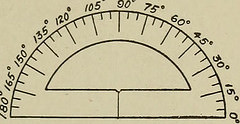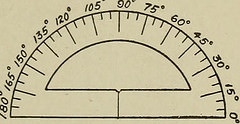A Simple Concept of Engineering Mathematics

Generally, people would automatically assume that you are good in mathematics when you enroll yourself in any engineering course. Engineering is almost synonymous to math and most people are not just that great in solving equations using numbers and logic.
During the freshmen year, general math like Algebra,Trigonometry and Geometry are being taught by university professors. Algebra has been learned in between the eight to the tenth grade depending on the curriculum in your state. This usually involves basic algebra which is about finding one or two more variables given a word problem and an equation. Equations and variables are being manipulated to obtain missing elements. Trigonometry is the study of angles and shapes. A good background of geometry is also essential to understand the theorems and proofs why certain shapes like triangles and circles have characteristics that can be used in solving a math problem in trigonometry.
In the sophomore years, calculus is usually being taken in engineering classes. There are two types of calculus depending on its application. Differential calculus is used in measurements of distance and velocity. Meanwhile integral calculus deals with the uses geometry in relation to solving real time situations like getting temperature and or time.
Also, engineering sciences like Physics starts on this second year. Engineering mechanics uses some principles of basic Physics in finding the solution to problems of moving and non-moving objects. These minor subjects
On the third year, statistics and probability come into view as well some advanced mathematics that discusses matrices. Depending on your major there are also other minor subjects that involve math in many ways.
On the fourth year, aside from the additional major electives and majors, there is also engineering economics and thermodynamics to deal with and pass!
On the fifth year, practically any remaining math level subjects has been taken – some even includes numerical methods in their curriculum just to hone the mathematical ability of college undergraduates. Some courses also encourage students to take on supplemental resources for other math subjects
Math is perhaps the most challenging subject ever invented but finding solutions via math solutions can also be liberating. Many engineering college students can clearly understand the concept of mathematics once they can use their calculations in their design and course applications.
It is true that majority of mathematics you learn in the university cannot be recalled when you graduate and get a job except if you happen to land on a related job that truly needs constant calculations. But generally, most engineering jobs still uses a little bit of math when proposing solutions to client and of course.
Learning math can improve your analytical skills and help you cope with the variables in any situations. All you need to do is to learn to love its concepts and memorize the basics. Most often than not, you will appreciate learning in a progressive exposure to numbers compared to being asked to audit without you having any idea what to look for in the whole picture.
Nancy Z. Smith enjoys writing educational materials like test prep and ssat prep and other related fields.
